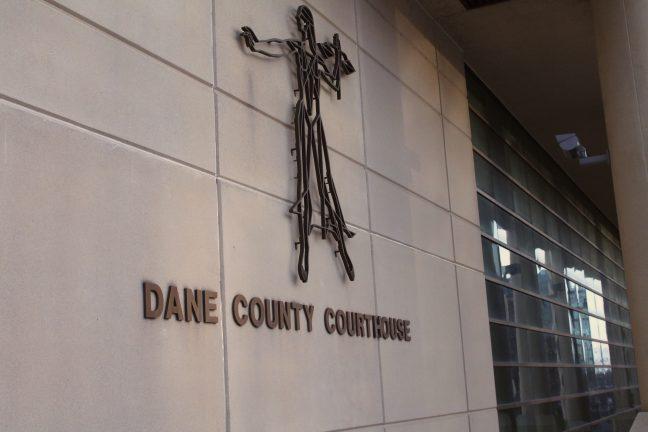The survivors of the Parkland shooting were in Madison Friday. It was only a day before, in the very same city, that serial sexual assaulter Alec Cook was sentenced to three years in prison for crimes that could have landed him nearly 40.
The Parkland student activists relay a wealth of knowledge in times of tragedy, namely the important, yet often overlooked idea of holding elected officials accountable. This can be hard to do when the elected official in question — indeed, the entire governmental branch of that elected official — oftentimes feels out-of-reach and inaccessible.
Many may be surprised to learn that here in Dane County, and in most counties throughout the country, judges are elected. That means that they can lose their seat if voters decide to kick them out of office, just like representatives and senators and presidents.
But in between elections, judges often seem like an entirely different breed of elected official. For our representatives and senators, constituents have the opportunity to call their elected official’s office to speak their mind ahead of an important vote. They can attend town halls and ask tough questions. So when constituents hit the voting booths come election time, they feel they know the incumbents because these mechanisms of accountability grant constituents repeated access and exposure to them.
Who can honestly say the same for judges?
In many ways, there’s some logic to this set-up. After all, the vast majority of the general public does not boast a law degree or even a firm understanding of how the judiciary operates.
But, at the same time, the vast majority of the general public can’t call themselves experts on policies related to health care or national security or foreign affairs — and yet every election cycle we go to the voting booth firm in our own views on all of these topics and in the choice of our selected candidate as the best realization of all that we believe to be right and true.
In March, The Badger Herald editorial board wrote that after Cook pleaded guilty to five felonies, his case put “Wisconsin at the precipice of change” in how sexual assault cases are handled. On Thursday, Wisconsin failed to drive that change home, and we were instead witness to another underwhelming sentence for a self-admitted rapist.
In his sentencing statement, Dane County judge Stephen Ehlke said it is uncommon in a case where the defendant has no prior criminal record — like Alec Cook — to be sentenced to prison. Additionally, Ehlke said the courts must deliver the minimum sentence to hold a defendant accountable to avoid being governed by emotions.
But for someone like Cook — who was charged with 23 crimes of sexual violence and other related offences stemming from the personal stories of 11 women, and who admitted guilt to five of the most serious of these crimes — is it right to look at him as any other defendant with no prior criminal record?
It should not be unusual for someone like this to go to prison on their first offense. The court pursuing sentences above and beyond the minimum should not be an anomaly.
In courts of law, where everything relies on precedent and past judgment, it’s important to remember that it was men who most likely set that precedent and who most likely delivered those past judgments. And in cases of sexual assault, where the perpetrators too often seem to escape what so many of us would define as a just punishment, it’s important to remember that the victims are too often women.
Essentially, it’s no stretch to say that centuries-old judicial precedent has been set by men who have enjoyed public office and taxpayer-funded salaries with no clear mechanisms for public accountability beyond disparately scheduled and poorly advertised elections — if there are any elections at all.
So if future sexual assault cases are to set forward the change that Wisconsin failed to, it would appear that the people making the decisions have to change first, and the public’s ability to hold them accountable for those decisions must change now.
We’ve already seen this play out in California. The judge who delivered the three-month-long prison sentence to Brock Turner, the Stanford student convicted of rape, can no longer be called “judge.” In a rare move of judicial accountability, he was recently recalled from his position by California voters.
As it stands, our judicial system is only as good as the judges of the past who set the precedents we live with now. But, the judges of today will deliver decisions that will impact our lives in the future, and there is room for new precedents to be set.
In the public sphere, we get to decide how we want to be governed through elections and by holding our elected officials accountable. But judges and the judiciary at-large often feel inaccessible, and its governing precedent has been developed by centuries of male judges who fail to represent much of the general public. As a result, sentencing practices are often out-of-touch with what we as a society have agreed is thoroughly right and just.
Moving forward, we must work to hold our judiciary accountable and elect judges who better represent what we believe is right, so that that governing judicial precedent might begin to change.
Most importantly, let’s never forget that the power to choose the judges who will set the precedent of tomorrow lies with all of us.


